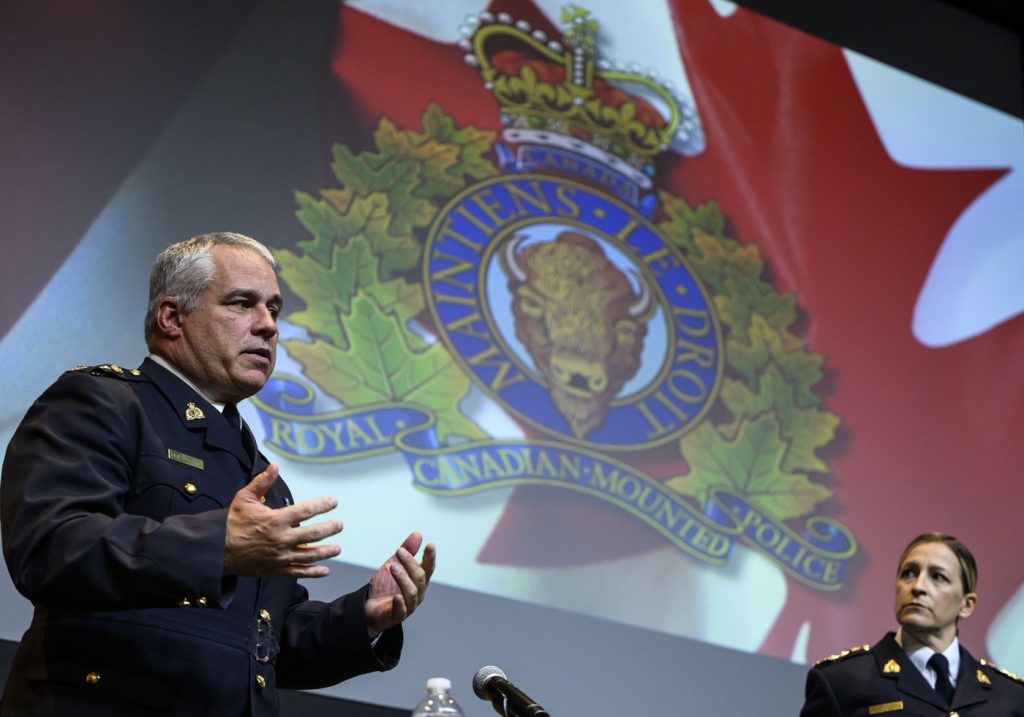OTTAWA – Politicians from various parties are urging the Canadian government to classify the Bishnoi gang, which has ties to India, as a terrorist organization. The federal Conservatives plan to address this issue when Parliament reconvenes this month.
What is the Bishnoi gang?
Lawrence Bishnoi, the alleged leader of the gang, has been imprisoned in India for nearly a decade due to his involvement in gang violence. The 32-year-old is said to operate this "terror-syndicate from jails across India" and is believed to have connections with affiliates in Canada. Reports from multiple Indian media outlets suggest that Bishnoi transferred substantial sums of money to Canada and Thailand between 2019 and 2021, a claim that has not been independently verified.
Wesley Wark, a senior fellow with the Centre for International Governance Innovation, noted that Bishnoi became an international criminal figure rapidly. Indian journalist Ritesh Lakhi revealed in a 2024 interview that Bishnoi's early involvement in criminal activities included street fights and arsons, suggesting that his notoriety escalated while interacting with other notorious gang members during his imprisonment.
Bishnoi has made headlines for issuing threats against well-known Indian celebrities, political figures, and business leaders. Notably, he has been linked to the 2022 murder of Punjabi rapper Sidhu Moose Wala, who spent some time in Canada.
How is the gang tied to India’s government?
India asserts that the prosecution of Bishnoi is based on legitimate criminal acts; however, he is accused of orchestrating extortion while incarcerated, allegedly making use of a cellphone. This situation raises questions about possible protection from the Indian state, as suggested by Lakhi. Wark posits that the gang is perceived as a proxy entity utilized by the Indian government for various forms of transnational repression, including violent acts.
What has the gang done in Canada?
In December 2023, law enforcement in Abbotsford, B.C., launched an investigation into extortion activities aimed at affluent members of the South Asian community, linking these acts to the Bishnoi gang. Police in Ontario and Alberta have issued similar claims. The gang gained national attention in Canada during the Thanksgiving weekend of the previous year when the RCMP accused them of orchestrating violent crimes against Sikh activists within Canadian borders.
The RCMP alleged that the gang targeted those advocating for a Sikh state, known as Khalistan. They claimed that Indian diplomats relayed information about Khalistan supporters residing in Canada to officials in New Delhi, who subsequently passed that information to the Bishnoi gang. RCMP Assistant Commissioner Brigitte Gauvin mentioned that this collaboration resulted in the killings of Canadian citizens and acts of coercion and extortion, asserting that the group has ties to agents within the Indian government.
The Indian government quickly dismissed these allegations, with foreign ministry spokesman Randhir Jaiswal stating it was odd that Canada would blame India for criminal activities involving individuals they had sought to deport.
Who wants this gang named as a terror group?
Several Canadian political leaders, including B.C. Premier David Eby and Alberta Premier Danielle Smith, have called for the gang to be designated as a terrorist entity. Conservative leader Pierre Poilievre emphasized that such a designation would assist law enforcement agencies in dismantling an international extortion network, preventing Canadians from fundraising or recruiting for the gang.
Public Safety Minister Gary Anandasangaree’s office has not disclosed whether the Liberal government intends to add the Bishnoi group to the terrorism list. The government emphasizes that the decision involves public servants and is based on explicit criteria evaluating terrorist activities.
What are the political factors at play here?
According to Carleton University political scientist Jonathan Malloy, Canadian political parties are trying to balance relations with India while catering to both Sikh and Hindu voters. He notes that tensions have escalated following the assassination of Khalistan activist Hardeep Singh Nijjar near Vancouver, an act Canada has attributed to the Indian government. The Conservatives have framed the matter as a security issue in alignment with their law-and-order platform.
What would a terror listing change?
Public Safety Canada outlines that listing a group as a terrorist entity could prohibit activities such as financing, travel, and recruitment, allowing for the potential seizure or freezing of assets associated with that group. Individuals knowingly aiding these activities could face serious criminal consequences.
While the federal terrorist entity list primarily targeted groups employing violence for political goals, it has since expanded to encompass right-wing militias and foreign military organizations.
Is a terrorist designation a good idea?
Wark opines that designating a group as a terrorist entity may not yield substantial practical outcomes unless the group is involved in financial activities within Canada that law enforcement can disrupt. He describes such listings as primarily political maneuvers or "security theatre." Wark advocates for a comprehensive reform of Canadian law enforcement rather than mere designations that do not address the core challenges faced by national security agencies.
Ultimately, the effectiveness of addressing the activities of the Bishnoi gang will rely more on proactive law enforcement and intelligence-gathering efforts than on their designation as a terrorist organization.











